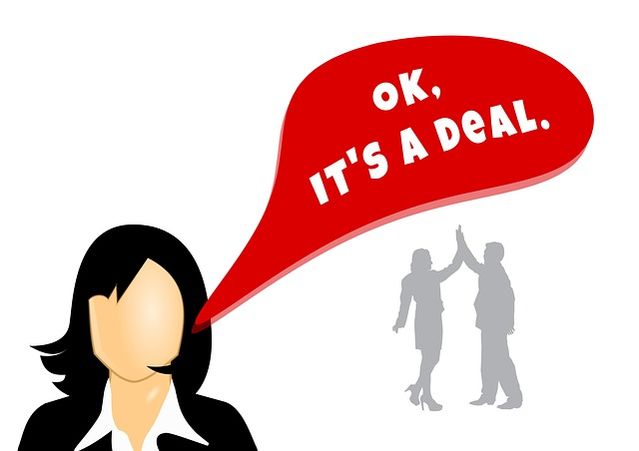
Anxiety
6 Tips to Negotiate a Speaking Contract
How to Get Paid What You're Worth
Posted February 2, 2016

O.K. Now you are starting to get noticed in your field. In fact, someone wants to PAY you to speak to their organization. So, how can you, as a speaker, go from FREE gigs to FEE gigs? After all, the question every presenter wants to hear after a free gig is: “We LOVED you! So… how much would you charge to speak at our company?”
Just last week I got a phone call from a Toastmaster who went through The Message of You University. She said, “I did a presentation at my Toastmaster club and now someone wants to PAY me! Nobody has ever offered to pay me cash-money before! Judy, what should I charge?”
Don't panic! In the world of professional speaking, to get paid what you’re worth or even more, you’ve got to play it right. If you quote too LOW, you’ll get an immediate reply of, “Sounds great!” – and then you’ll be punching yourself on the way home, knowing you should have gone way higher.
If you quote too HIGH, you might hear, “Oh, no! That’s way out of our budget!” – and you wind up losing the gig since you really can’t go down to $1,500 after quoting $10K without losing integrity.
So, rather than just quoting a price, ask the right questions. Here are 6 questions YOU need to ask before quoting a price when you hear that magic question, “How much do you charge?”

6 Questions to Ask when Negotiating a Speaking Contract
Question #1: “Tell me about your event.”
This will help you gather valuable information so you can decide if you even WANT to do the gig. The event might be in a really cool city that you’ve longed to travel to, or it might be a fundraiser that takes place in a meat-packing plant where you wouldn’t want to risk your life for cab fare.
The second possibility is what happened to Talent Manager, Barb North. She didn’t want to do a certain gig so she quoted them double her price, and then she was (pleasantly) shocked when they agreed. Win-Win!
Question #2: “What kind of RESULTS do you want after I perform?”
This not only assists them in envisioning their attendees listening to you and coming away inspired, but if you listen carefully, you’ll gain insights you can use later when you’re negotiating money.
Question #3: “WHEN are you thinking about me going on?”
Knowing when you go on in the program is important for two reasons. First, it gets them picturing you at their event, making it seem more real. Second, when you hear about when they want you to go on, it will give you a better idea if you WANT to do the gig. I wish I had asked this question more often — because it would’ve kept me from getting stuck speaking to a horribly drunk audience who’d just enjoyed three hours of an open bar.
Question #4: “What is your budget?”
By now, you’ll have an idea of whether or not you want to do their event. So, if they make an offer too low on an unappealing event, instead of saying no, you might want to recommend the gig to someone else and take a cut. I’ve done that a lot, since I know a lot of talented, funny entertainers and speakers who would love to work for under $1,500 and give me commission. It’s a win-win for everyone. But, if the offer is in the ballpark of what you charge, say:
Question #5: “We are close to my fee; is there any other way to work this out?”
Ask this and then shut up and let them come up with some ideas. You might be thinking a couple free meals, they might come up with a week at a spa the company just happens to run. If they’re stumped, THEN offer some ideas of your own.
Very often, if a client can’t hit your fee, there are ways to close the gap. For instance, one client really wanted me, but I wouldn’t come down on my fee because it was an international gig, with a lot of unpleasant down time sitting in airports. When I asked her if she could think of any ways to close the pricing gap, she offered a solution: if I would do it for a reduced fee, she could offer me six more gigs.
Wow – was I glad I didn’t just say no! Deal!
That’s why I love saying, “We are so close…” – because there are a lot of ways to make up the difference in pricing, including product sales, email lists of attendees, referrals, and many more.
Question #6: “Can you give me overnight to think about it?”
Never be too anxious to say yes. If they want you, they want you — and you’re also giving them overnight to think of ways to come up with more money. Plus, it gives you time to call me and ask, “Judy, what should I charge?”
P.S. My student ended up asking for — and getting! — $1500… and lunch! Not bad for her first gig. But first thing you better have a speech with a great message.
More tips on how to be a paid speaker here



